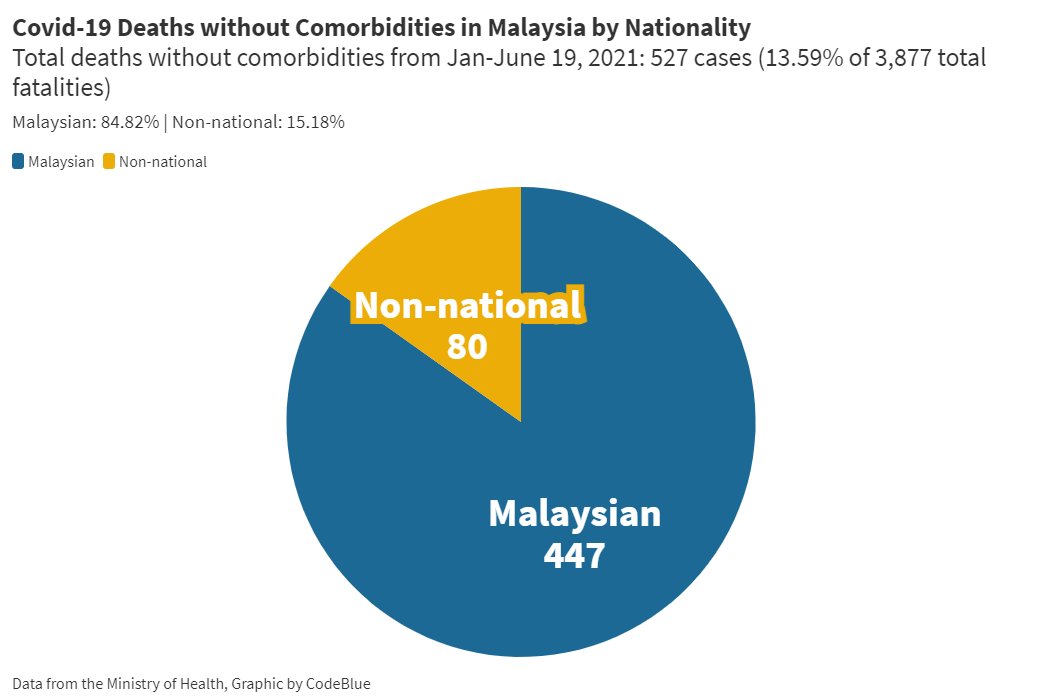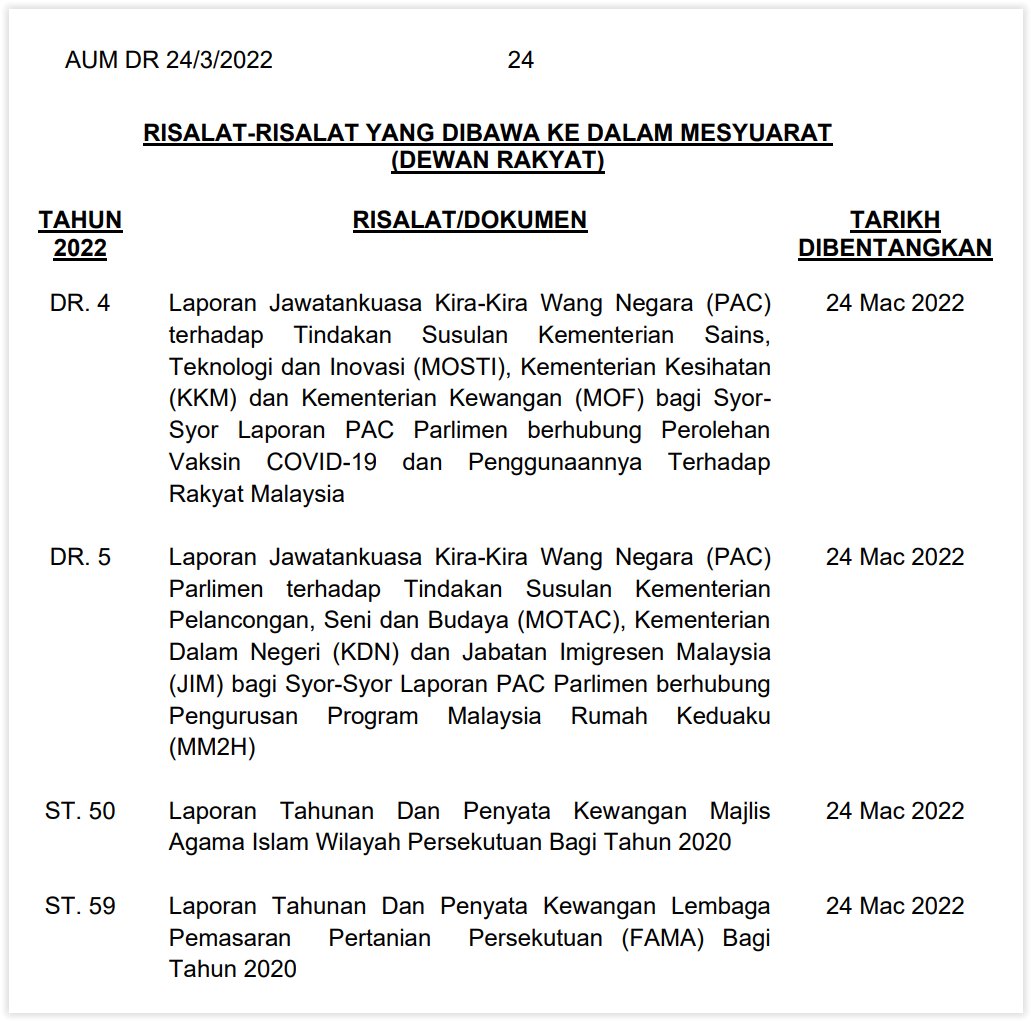Nearly 14% Of Covid-19 Fatalities This Year Were Healthy
This year saw a gradual increase of Covid-19 fatalities without comorbidities in Malaysia, reaching about 16% in June up to June 19.
codeblue.galencentre.org/2021/06/24/nea…
This year saw a gradual increase of Covid-19 fatalities without comorbidities in Malaysia, reaching about 16% in June up to June 19.
codeblue.galencentre.org/2021/06/24/nea…
527 people without comorbidities died from Covid-19 in Malaysia this year up to June 19, or about 14% of 3,877 total fatalities.
May and the first 19 days of June saw a steep increase in Covid deaths at 1,290 and 1,552 fatalities respectively, along with non-comorbid deaths.
May and the first 19 days of June saw a steep increase in Covid deaths at 1,290 and 1,552 fatalities respectively, along with non-comorbid deaths.

Of the 527 people without underlying health conditions who died from Covid-19 this year up to June 19, nearly 85% were Malaysians. 

The highest rate of Covid-19 deaths without comorbidities this year up to June 19:
- Labuan (261 deaths per million population)
- KL (43)
- Melaka (26)
- Selangor (25)
- Negeri Sembilan (20)
- Labuan (261 deaths per million population)
- KL (43)
- Melaka (26)
- Selangor (25)
- Negeri Sembilan (20)

The highest proportion of Covid-19 deaths without comorbidities this year (up to June 19) was among those aged 15-24 at 31%, or 4 of 13 total fatalities.
More Covid-19 fatalities w/o comorbidities, however, were recorded at 103 and 244 deaths in the 55-64 and ≥65 respectively.
More Covid-19 fatalities w/o comorbidities, however, were recorded at 103 and 244 deaths in the 55-64 and ≥65 respectively.

The highest proportion of Covid brought-in-dead without comorbidities was reported in the 15-24 age group at 15%, or 2 of 13 total deaths.
But higher numbers of BID w/o comorbidities were recorded among people aged ≥65 years at 52 deaths, followed by 45-54 age grp (41 deaths).
But higher numbers of BID w/o comorbidities were recorded among people aged ≥65 years at 52 deaths, followed by 45-54 age grp (41 deaths).

• • •
Missing some Tweet in this thread? You can try to
force a refresh











